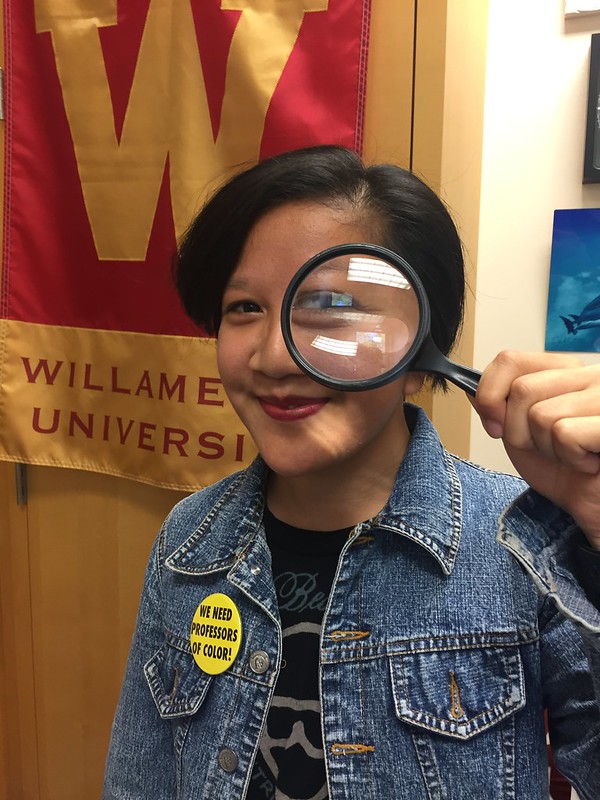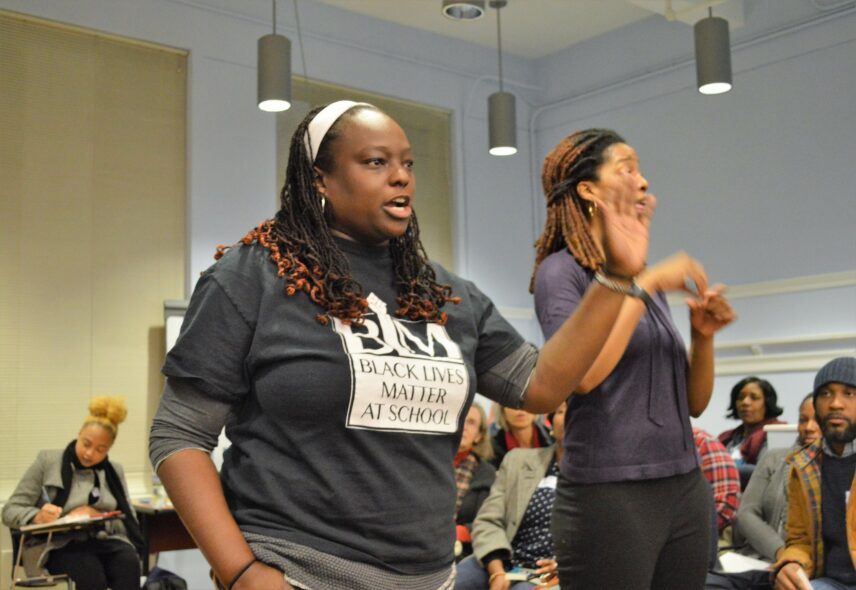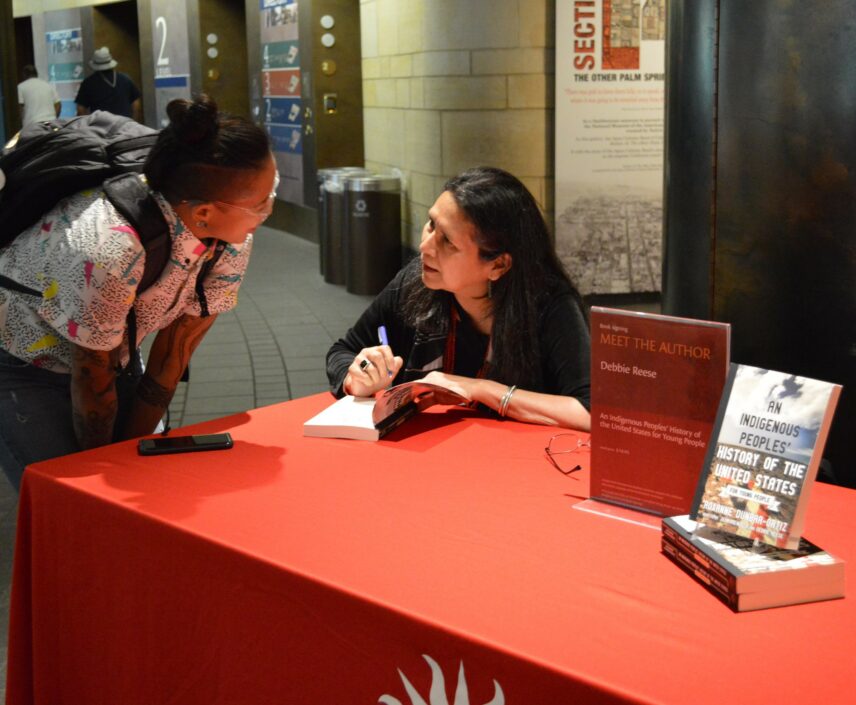Article begins
Addressing anthropology’s history of structural, institutional, and interpersonal racism has been a priority in the discipline most recently—though, not for the first time—since the summer 2020 global racial justice uprising. Yet modest commitments in the discipline and association that replicate past approaches have been, to many of us, worse than unsatisfying. They have been unethical and inadequate for the task of completing some essential strategies of justice-oriented transformation, for example truth-telling, collective organizing, power-ceding, and resourcing.
In fall 2020, a few members of the Association for the Anthropology of Policy (ASAP) self-organized into a working group on anti-racism with the support of the ASAP Board. We understood the Raising Our Voices virtual event as a leaping off point for committing our labor toward tangible systemic change in the discipline and association beginning with our own area. We sought to hold ourselves accountable to some of the work proposed at the event and to extend it by specifying its relevance to ASAP, historically a membership and lineage of disproportionate whiteness. We have been seeking to outline an anthropology of policy otherwise, which begins with humbly reflecting upon and actively transforming how we research, teach, learn, mentor, lead, agenda-set, collaborate, distribute resources, and develop pathways for the future in this field.
We have distilled our initial work into five themes, which we are now actively working on and which we will discuss at a roundtable at the AAA Annual Meeting entitled “Seeding the Change: Anti-racism and the Anthropology of Policy Otherwise.” Our motivations as we have worked on these themes have been both practical and aspirational. We recognize that the systems we intersect with as anthropologists, from our research to our academic institutions as well as to the sections we participate in, are complex and constitutive settings of control, exclusion, and power that profoundly shape how we navigate these spaces. Transforming these spaces in meaningful and lasting ways is a challenge that we take seriously; opening these spaces to change as we grow in our own understandings of anti-racism must be based on multiplying perspectives to elaborate and nuance the domains of what comes to be seen as diverse or equitable. This is generative and complicated work. Our efforts in the anti-racism group have been focused on putting together a strategy that knits both the practical steps we can take now and in the near future with our broader goals for a transformed anthropology, an anthropology otherwise. Here, we provide an update of where we have reached as both a means of accountability and a sincere invitation for the community to join us.

Citational justice
To promote citational justice, we have focused on goals that would create space for access to critical literatures as a community resource. We want these sources to be multi-genre, multimedia, interdisciplinary, and accessible on an open interface. We also want to compile and critically reflect on existing guides for journal editors to ensure citational justice. In order to provide a platform for BIPOC and LGBTQI+ scholars and activists for theoretical and applied anthropology and to also go beyond anthropology per se, we are working to create a web-based repository with the hope of collaborating with other AAA sections. Our next steps will be to invite the community to become involved in gathering these resources and collaborating on accessible and just mechanisms for circulation and curation.
Inclusive curricula
Our goal is to promote inclusive curricula including decolonial, anti-racist, and Black perspectives, together with intersectional approaches to anti-oppression for those teaching anthropology of policy and related courses. We acknowledge the deeply political work that this entails and the often unrecognized or intentionally effaced efforts of approaches such as Critical Race Theory and Queer theory among many others in pushing for change in our pedagogical practices and processes. Our efforts in this vein include compiling multimedia and sensorial references for decolonial, anti-racist, and anti-oppressive curricula within the anthropology of policy and to enable a mutually supportive environment for the open discussion of ways to overcome challenges to the development of anti-racist curricula and broader anti-racist andragogy. Both the challenge and opportunity of this goal is that it has to happen on multiple scales, from what is included in the classroom to what is evaluated on hiring committees reviewing a teaching statement. We hope people will join us in making concerted efforts to effect this change on the levels they have access to and are focused on.

Representation, recruitment, and retention
Widely acknowledged as an outstanding and serious issue within our current systems, representation, recruitment, and retention is an urgent priority that requires multiple modes of engagement. Our goal is modest and in need of expansion. This group seeks to motivate ASAP and AAA at large to analyze, address, and remedy the under-representation of people from communities facing racism within ASAP and beyond. We identify practical strategies, such as developing guidelines for ensuring inclusivity in conference, workshop, and hiring calls. Institutionally, we advocate for an official position of a diversity and anti-racism officer within ASAP as a node from which to build a platform that will make overarching changes. We seek community support in developing this goal further.
Mentoring and support
The landscape of mentoring from the student level to those junior in their career is a varied one. Our goal in supporting and promoting mentorship is to create a welcoming and supportive space for graduate students and early career scholars, offering appropriate mentoring and advice on any and all aspects of their careers within anthropology and beyond. To ensure the increased involvement of BIPOC mentors and mentees within ASAP, we endeavor to promote commitments in ASAP and across AAA to address gaps, exclusionary practices, and negligence within existing mentoring programs, as well as provide content and a forum space to widen discussion about respectful, multiple, equitable, and accessible mentoring practices. Yes, the community is crucial in advancing this goal, but more importantly, the community is the goal. Thus we hope we can work together in generating responsibility for mentoring, open communication, and care in our positions (no matter what they are) and in making space for supportive communities to flourish across our academic institutions. We have submitted a mentoring event to the AAA Annual Meeting, “Transforming Pedagogies in Anthropology,” to engage on the topics of transforming pedagogies and we hope you will join us.

Alliances, activism, and organizing
Aligned with our commitment to an anthropology beyond academia, our final goal is to build nonexploitative alliances on anti-racism inside and outside of academia. As a policy section, one way we can take responsibility for the positions we occupy and the knowledges we generate is by participating in collaborations. We endeavor to develop general principles and guidelines for ASAP in developing anti-racist alliances, with the intention of making this work transnational and open. This goal is in need of our community to bring their networks to the table and to create a larger assembly willing to engage with us on the multifacetedness of the advocacy landscape in innovative, and nonexploitative ways.
There is a lot of work to do in order to make anti-racism a reflexive and critical part of our larger anthropological practices. Within ASAP, we hope to open up more lines of conversation, commitment, and action about justice, equity, and inclusivity through these goals. We welcome community engagement in all parts of this process and hope that you will dialogue with us on this transformational process. Please join us in discussing our work so far and how we can continue to grow it during our AAA panel entitled, “Seeding the Change: Anti-racism and the Anthropology of Policy Otherwise.”

